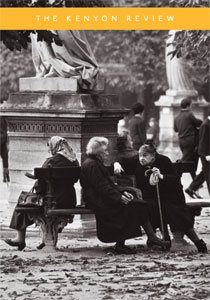The weekly collection of writing-related reflections, news, and resources to read over the weekend.

Let’s begin with something that’s been making the e-rounds: Philip Roth sets the record straight on the inspiration behind the protagonist in The Human Stain. (You thought the character was based on Anatole Broyard? Think again.)
Next up: This interview with Sarah Davies includes some important questions every writer should ask before signing with an agent. (via @occasionallyzen)
Ever find yourself facing Twitter-related dilemmas? Thankfully, Nina Badzin will be writing a Writer Unboxed column to help guide and advise you.
I don’t know about you, but I’m always fascinated to learn why editors choose a particular piece. In this post, The Kenyon Review‘s David Lynn explains why KR chose Segun Alfolabi’s story “Ezekiel,” which appears in the fall 2012 issue.
It’s mid-month, which means it’s time for another installment of the Fiction Writers Review “First Looks” column, where I present intriguing about-to-be published works of fiction.
Have a great weekend, all. I’ll be busy celebrating Rosh Hashanah on Monday, but I’ll make sure there’s a post up for you nonetheless.
